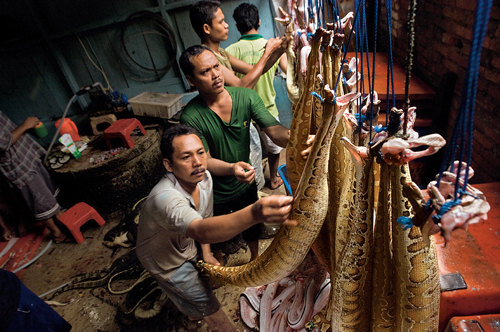First carnival in two years: Rio’s holy ground trembles again

Rio’s carnival is back: after a two-year break from the pandemic, the big samba schools are once again parading through the streets – in memory of the corona dead, but also cheerful and combative.
They had to wait a long time before this rhythm could be heard again, the Sapucai, the famous street through Rio’s Sambodrome, lay before them again in the glaring light of the headlights. It’s thrown back a thousand times by all the glittering sequins, the shiny gold costumes and mirrored cars. The crowd cheers, the crowd waves – and then Rafaela Teodoro, flag bearer of the Imperatriz samba school, opens the show.
“It’s a unique feeling. Only those who are samba dancers and love carnival know how important it is for us to step on this sacred ground again after a two-year break. With respect for all the lives we lost in these two years We’re giving everything for all of them today. This moment is also for them,” says Teodoro.
Omikron caused another shift
It had to be canceled for two years, Rio’s famous competition of samba schools in the sambodrome, because of the omicron variant it has now been pushed back from February to the end of April. The corona pandemic has hit Brazil hard. More than 660,000 people have died from the virus, and the samba schools have also lost many of their members, says Jo Calca Larga, who is responsible at the Salgueiro school for ensuring that the parade, in which hundreds of people take part, moves forward at the right pace.
“It’s all very moving, I have to keep a cool head so that our move goes perfectly today,” says Larga. “We lost friends and relatives, I didn’t know myself if I would survive Covid and be able to experience carnival again.” He thanks the scientists and health workers who fought like this. “To be alive here today is to resist.”
Against racism and slavery
Resistance – “Resistencia” – is this year’s motto of the Salgueiro school, which is appearing this year with 170 black activists, in whose parade refugees from Syria, Venezuela and the Congo are taking part and who loudly denounce racism, slavery and discrimination.
At the same time, resistance is a kind of red thread that runs through this carnival. It is also about the struggle of Afro-Brazilians to preserve their culture, history and religiosity. As in 2019 and 2020, the schools are taking a combative stance against the Bolsonaro government, which has promoted hatred and intolerance with its discourse, played down the pandemic for a long time, and delayed the vaccination campaign.
“Samba is resistance”
Kelly Cristina dances at Mangueira. The school is famous for being provocative and has repeatedly been attacked by arch-conservative and ultra-religious forces. “The fact that we are dedicating our move to three samba musicians who have done great things for our favela is political. The fact that the population here, who is ignored and not valued, is in the spotlight is political,” she says, adding: “And we still have to much louder! Samba is resistance, which is why it was banned and discriminated against. What color do the samba dancers have, where do they come from? It’s political.”
Above all, however, the return of joy is celebrated on this evening, it is also a moment of relief that everyone urgently needs. A few meters behind the Sambodrome, the celebrations continue, albeit unofficially, on the street.
More than 90 percent of the people in Rio are now fully vaccinated, and nobody comes to the Sapucai without proof. “Thank God not,” says an old man. “I’m 81 and I’ve been vaccinated five times, four times against Covid, once against the flu. And if you have anything else, bring it on, they should just stay away, these diseases.”




